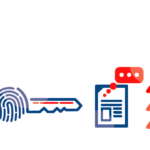Featuring proposals for an EU open access research platform, a tribute to Professor Doug Altman, and the ramifications of preprinting medical research.
Are open access publishing platforms the future for academic publishing in the EU? via Science Guide
A consortium of native open access publishers, including PLOS and Ubiquity Press, have put new proposals to the European Commission for a platform designed to help deliver on the Horizon 2020 open access publishing goals. Authors submitting to the platform list a hierarchy of target journals from a selection of integrated publications as part of their submission, and a portable peer review system then cascades through those selected journals until a publication offer is made. The cost to publish through this new system will be substantially lower than the traditional article processing charges, with an average of €1400 per article and a barrier to double dipping. The proposal has been revieved positively, described by Robert-Jan Smits as “innovative and the partners involved, rock solid”. The proposal is similar other initiatives that are currently being developed, such as that made by the National Information Standards Organization in the USA.
A tribute to Doug Altman, a pioneer in medical statistics via The Scientist
People across the world of scientific publishing are paying their respects to Professor Doug Altman, who passed away this week aged 69. Altman had a long and influential career in the world of medical statistics, and had co-founded the EQUATOR Network and the Centre for Statistics in Medicine at the University of Oxford. He was passionate about improving the way that medical research is designed, conducted and reported. The improvements brought about in the quality of medical evidence through his work have positively impacted uncountable lives.
Could authorship be the carrot that gets researchers to share their data? via The New England Journal of Medicine
Many researchers are wary of sharing their datasets used for their research for understandable reasons: they may be mischaracterized by other competing researchers, they may contain confidential information that would take time to anonymize, or it might just be a hassle to make presentable. This correspondence, published in the The New England Journal of Medicine, makes the argument that enabling researchers to take full credit for the datasets they create would make the prospect of sharing research data more appealing.
What are the rights of authors in the peer review process? via PLOS blogs
Written in response to an article on the core competencies required forrom journal editors, this piece outlines what each author felt to be lacking – regarding author rights. It outlines six core author ‘rights’ that all editors should bear in mind when reviewing scientific work: the right to not have their manuscript made worse; the right to non-discrimination; the right to be protected from the reviewer’s conflicts of interest; the right to hype-free reporting of thier research; the right to complain responsibly; and the right to have their time valued.
What do preprints mean for medical publishing? via Open Pharma
The prospect of preprinting medical research is a daunting one for many. With the advent of medRxiv, which is now on the horizon as a preprint server explicitly for medical research, concerns are being raised that danger awaits beyond the walls of the ‘safe harbour’ of peer review. This piece explores the questions medical researchers and their funders face on the ramifications of preprinting medical research, taken from a round table session presented at this year’s Annual Meeting of the International Society for Medical Publication Professionals.






